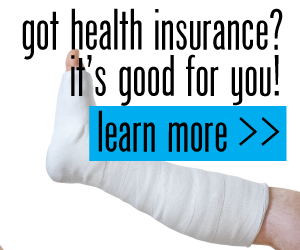 Connie Waller thought she was having a heart attack when she sought treatment at Piedmont Newton Hospital. Her heart was pounding and there was pressure in her chest. But much to her surprise, doctors at Piedmont Newton told her she was suffering from broken heart syndrome.
Connie Waller thought she was having a heart attack when she sought treatment at Piedmont Newton Hospital. Her heart was pounding and there was pressure in her chest. But much to her surprise, doctors at Piedmont Newton told her she was suffering from broken heart syndrome.
“When I found out that what happened to me was caused by stress, I knew that I immediately needed to begin exercising more,” Waller said. “It wasn’t a requirement, but in my mind it was.”
Broken heart syndrome, also known as takotsubo cardiomyopathy, is relatively common. People with this syndrome often see their doctor for chest pains, believing they might be having a heart attack. The chest pains, however, are not caused by clogged arteries; they are the result of severe emotional stress.
Waller enrolled in Piedmont Newton Fitness Center’s 12-week cardiac rehabilitation program, offered to patients who have experienced a heart attack or heart episode in the past 12 months.
“When I started working out at Piedmont Newton, I assumed once I finished the program I’d stop coming,” Waller said. “I ended up really loving it, so my husband David became a member because we like to work out together. Coming to Piedmont Newton makes us healthier and gives us a chance to exercise right.”
Medical professionals closely monitor fitness center members during workout sessions, which are offered four days a week and are modified based on individual needs. The center offers a variety of programs relating to exercise, nutrition, and disease prevention. Programs include monitored cardiac rehabilitation, maintenance, risk factor reduction, and healthy senior exercise programs.
“Research shows that exercise and other physical activity can reduce stress, which often is the underlying cause of broken heart syndrome,” said Mark Hanson, MD, cardiologist at Piedmont Newton. “This condition typically is seen in women ages 60 and older after some sort of stressful event in their life. Fortunately, many people make a full recovery like Connie did.”
Symptoms of broken heart syndrome include chest pain, shortness of breath, weakness and an irregular heartbeat. Potential triggers include abuse, death of a loved one, an upsetting medical diagnosis, financial difficulty, a surprise party, public speaking, a car accident, major surgery, or an asthma attack.
For more information about services offered through the Piedmont Heart Institute, visit piedmont.org/heart.











Yay, Connie! This cardio rehab center is awesome. I, too, went there back in 2007(and continued for a year or more) after I was told I could start exercising but needed monitoring. The staff was excellent, the education sessions were helpful, and the camaraderie among the participants was “heart” felt.
I started going there six and half years ago, after having a heart attack and bypass surgery. The staff was excellent in facilitating my recovery. I still go three to four mornings a week. The staff and other patients have become like family.